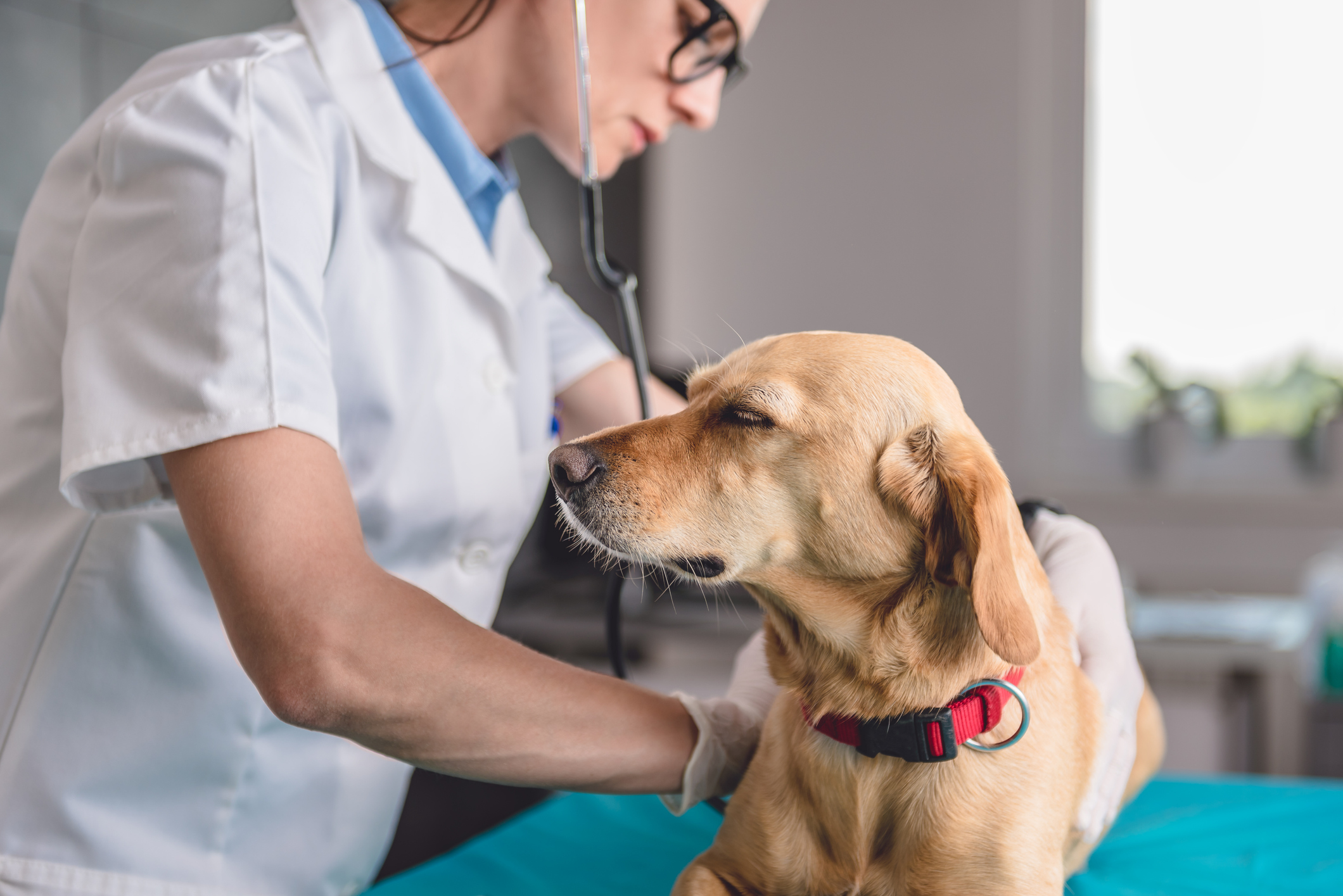
Can Dogs Also Get Asthma?
Dog allergies are pretty common. Many pups develop atopic dermatitis—an itchy skin reaction—as a result of food, environmental and seasonal outdoor allergies. However, there is another aspect of allergic reactions that isn’t seen as often in dogs: asthma.
Asthma is much more common in cats, but it can occur in dogs, as well. Similar to environmental or seasonal allergies, asthma attacks are triggered by an allergic reaction—only this time, the reaction occurs in the lungs.
Asthma can be dangerous in animals, so it is important to know the signs and what to do in the event of an asthma attack. Armed with this information, you might be able to save your dog’s life!
What is asthma?
Considered a form of allergic disease, asthma causes sudden inflammation in the airways when your dog is exposed to an airborne substance it is allergic to. This inflammation, as well as mucus production, can cause the lungs to constrict and spasm, making it difficult for your dog to breathe properly.
Lots of things can trigger asthma attacks in dogs, from mold and pollen to household cleaners and perfume. It may take some time to determine what your dog’s specific allergies are.
When an asthma attack occurs, dogs may begin to cough or wheeze, pant with their mouths more wide than usual and appear to have a very difficult time breathing. It can sometimes be difficult to determine whether your dog is panting very hard or having an asthma attack, but coughing and wheezing, as well as the appearance of panic, are usually the biggest determiners.
In very severe cases, the dog’s gums can begin to turn very pale pink or even blue; this is caused by a lack of oxygen and needs to be addressed by a professional as soon as possible.
Asthmatic dogs also tend to be lethargic and lose their appetite quickly.
For some dogs, asthma attacks can become so severe that they prevent the dog from getting enough oxygen, and long-term problems or even death could be the result.
Smaller dogs and dogs with flat faces are more likely to develop asthma, but the disease can manifest in all dogs. It is also most commonly found in middle-aged dogs.
What to do if your dog has an asthma attack

Once you discover your dog has asthma, prevention is the best way to avoid severe asthma attacks and keep your pup safe and comfortable. This might include not smoking around your pet, using HEPA air filters in the home and cleaning the house using natural cleaners.
Unfortunately, it’s not easy to tell whether your dog suffers from asthma unless it has experienced an asthma attack, and these can come without warning.
If you notice your dog showing the signs of an asthma attack, you’ll want to get it to the vet as quickly as possible. There, your vet will need to run some tests to determine whether your dog does, in fact, have asthma, or if it has another respiratory illness like heartworms or an infection.
Once asthma is confirmed, your vet can create a treatment plan for your dog that will include asthma attack prevention, as well as immediate treatments if your dog does experience an attack.
Treating your dog's asthma
One of the most common forms of treatment for asthma is a bronchodilator, which disperses medication that opens up the airways and makes it much easier for your dog to breathe. These medications are prescription-based and specific to pets. You should never give your dog asthma medication intended for humans during an asthma attack!
Dogs with milder forms of asthma might be okay using natural supplements to reduce their allergic responses and minimize inflammation in the airways. Omega-3 fatty acids are known for their anti-inflammatory properties, among other benefits. Other supplements with herbal ingredients may help bolster the immune system and reduce allergic responses.
Even mild cases of asthma may still be prescribed a bronchodilator or steroids, in case of an acute attack that poses a major threat to its health. However, with the use of prevention methods and natural supplements, your dog should have a reduced risk of attack.
If your dog has an asthma attack after being diagnosed, watch it carefully to ensure it is not having a severe attack and administer the steroid or bronchodilator medication as instructed if needed. Be cautious when interacting with your pet, since it may feel panicked and may act aggressively toward you. If your dog’s gums turn pale or it is struggling to breathe, get to the vet for professional help as soon as possible.


